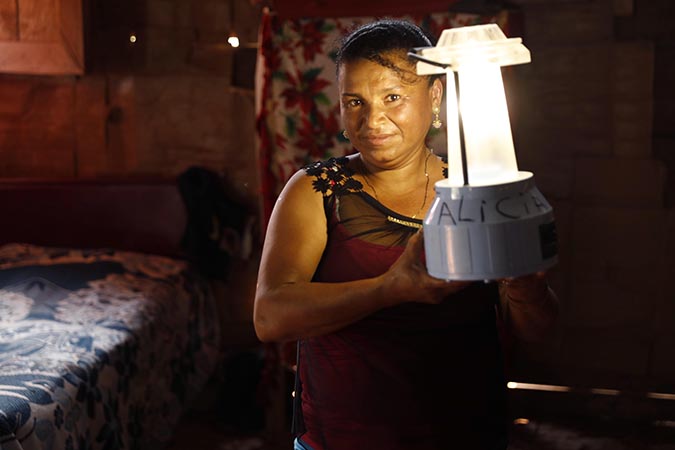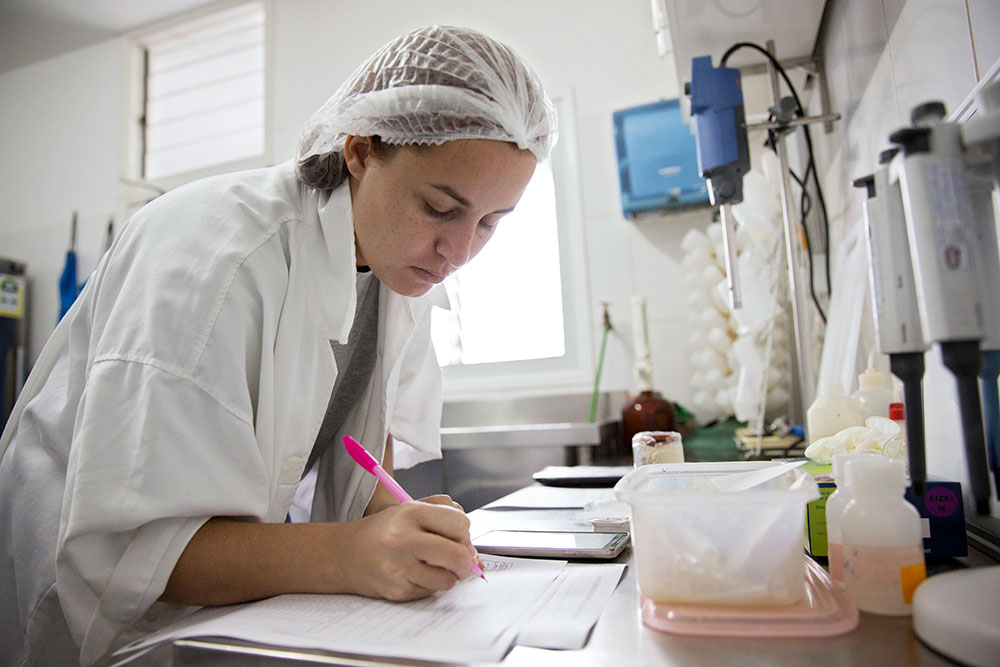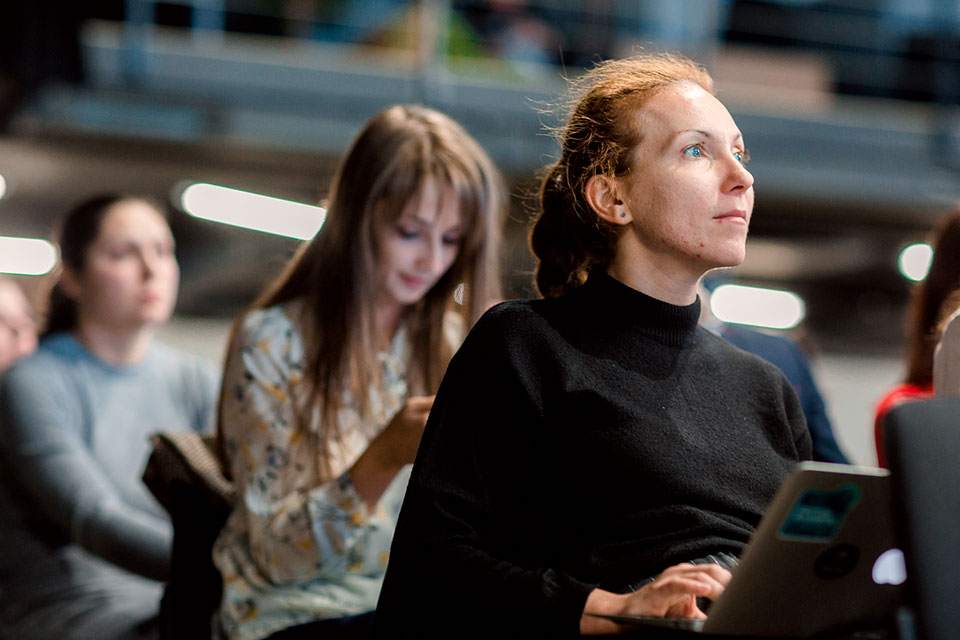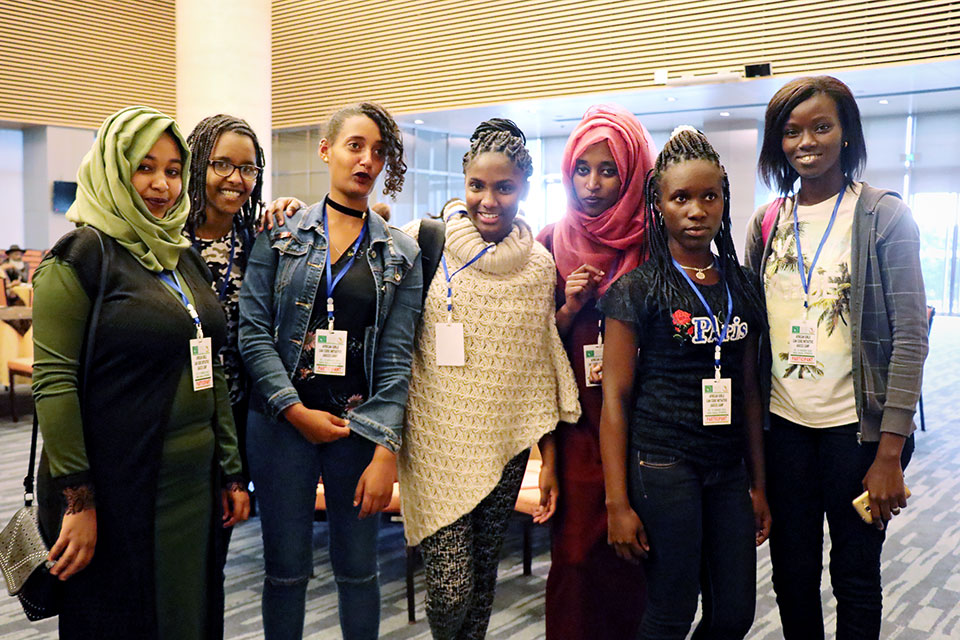In Focus: International Day of Women and Girls in Science

Top stories | Video | Social media
On 11 February, the United Nations, partners worldwide, women and girls will mark the International Day of Women and Girls in Science. Why does it matter?
Joint statement
In a message for the International Day for Women and Girls in Science, Phumzile Mlambo-Ngcuka, Executive Director of UN Women and Audrey Azoulay, Director-General of UNESCO highlight the importance of encouraging a new generation of women and girl scientists to tackle to major challenges of our time. Read more ►
Recent studies suggest that 65 per cent of children entering primary school today will have jobs that do not yet exist. While more girls are attending school than before, girls are significantly under-represented in STEM subjects in many settings and they appear to lose interest in STEM subjects as they reach adolescence. Debunking the myths that girls do not like the sciences and other and gender stereotypes, along with investment in teacher trainings, gender-responsive technology and innovation can reverse these trends.
With Sustainable Development Goal 9, part of the Global Goals that world leaders agreed to in 2015 with a deadline of 2030, countries around the world have pledged to “build resilient infrastructure, promote inclusive and sustainable industrialization and foster innovation”. Yet, a look at where funding is allocated a different picture. At present, only 1.7 per cent of the global GDP is dedicated for research and experimental development
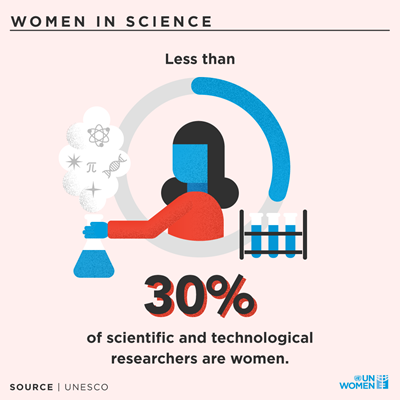
As the fourth industrial revolution starts, women still have less than two-third of the economic opportunity that men have. The jobs of the future will be driven by technology and innovation, and if the gender divide in Science Technology Engineering and Mathematics (STEM) is not bridged soon, the overall gender gap is likely to widen.
Less than 30 per cent of researchers worldwide are women. With too few women in decision making roles and higher-paying STEM jobs, the gender gap in STEM has deep implications for the future of global economy. For instance, women stand to gain only one new STEM job for every 20 lost, in stark contrast to men, who gain one new STEM job for every four lost. Improved recruitment, retention and promotion policies, as well as continuous learning and up-skilling for women can go a long way towards closing this gap.
On International Day of Women and Girls in Science, lets change this narrative. Join us in celebrating women and girls who are leading innovation and call for actions to remove all barriers that hold them back.
Top stories
Editor's pick
Telling SAGA: improving measurement and policies for gender equality in science, technology and innovation
UNESCO has a key role to play in taking up these issues and in promoting women and girls in and for science. To support these efforts, the STEM and Gender Advancement (SAGA) project provides tools to help reduce the current global gender gap in science and increase the visibility, participation and recognition of women’s contributions to science while exploring good practices from countries around the world. This publication provides answers to three important questions: Where do we stand? Why is it important to bridge the gender gap in science technology and innovation? How can we bridge this gap?
Video: Why support women and girls in science and technology?
Despite progress in ensuring opportunities for women in STEM fields, women and girls continue to be systematically underrepresented as users and leaders in the fields of science, technology, engineering and mathematics. In order to achieve the sustainable development goals, we need to ensure full and equal access to and participation in science for women and girls.
Social media
Join us on 11 Feb, Int'l Day of Women & Girls in Science, to celebrate all the inspirational #WomenInScience! One of them is Katherine Johnson, who helped send 👨🚀 to the 🌕 with her calculations! pic.twitter.com/oJyyswIVFC
— UN Women (@UN_Women) February 7, 2019
On 11 February, take a stand with #WomenInScience, who are underrepresented & undervalued, despite being the world’s greatest untapped resource for a sustainable future! pic.twitter.com/928lwMuud2
— UN Women (@UN_Women) February 8, 2019
Use the hashtag #WomenInScience with messages that defy gender stereotypes and spread the word on the need to include more women and girls in STEM fields! A social media package with sharable data cards, inspirational quote cards and videos in English, Spanish and French is available here.
Tweet #WomenInScienceFollow us:
@un_women, @onumujeres, @onufemmes on Twitter
UN Women, ONU Mujeres, ONU Femmes, on Facebook
unwomen on Snapchat
UN Women on Google+
UN Women on Instagram
UN Women on Pinterest
UN Women on LinkedIn

